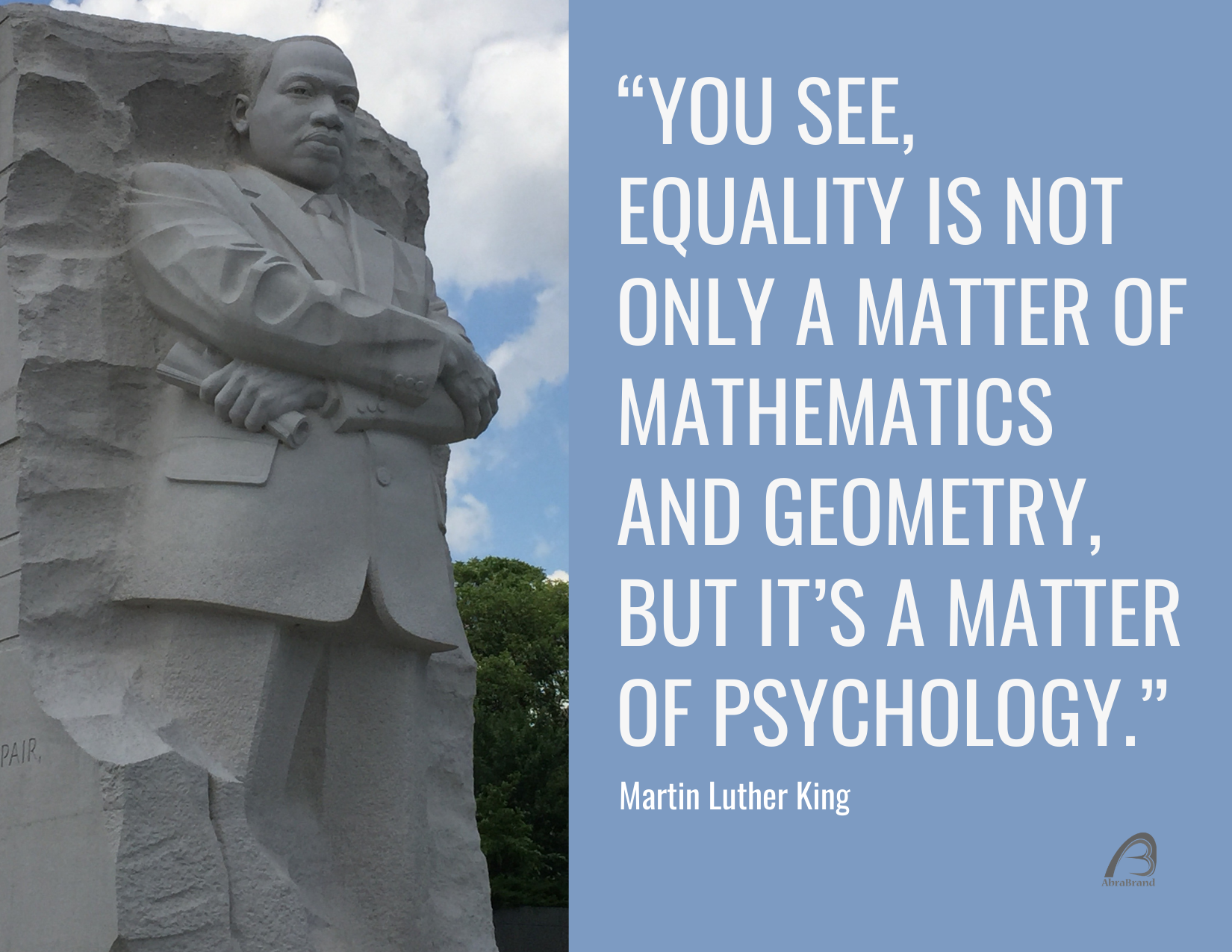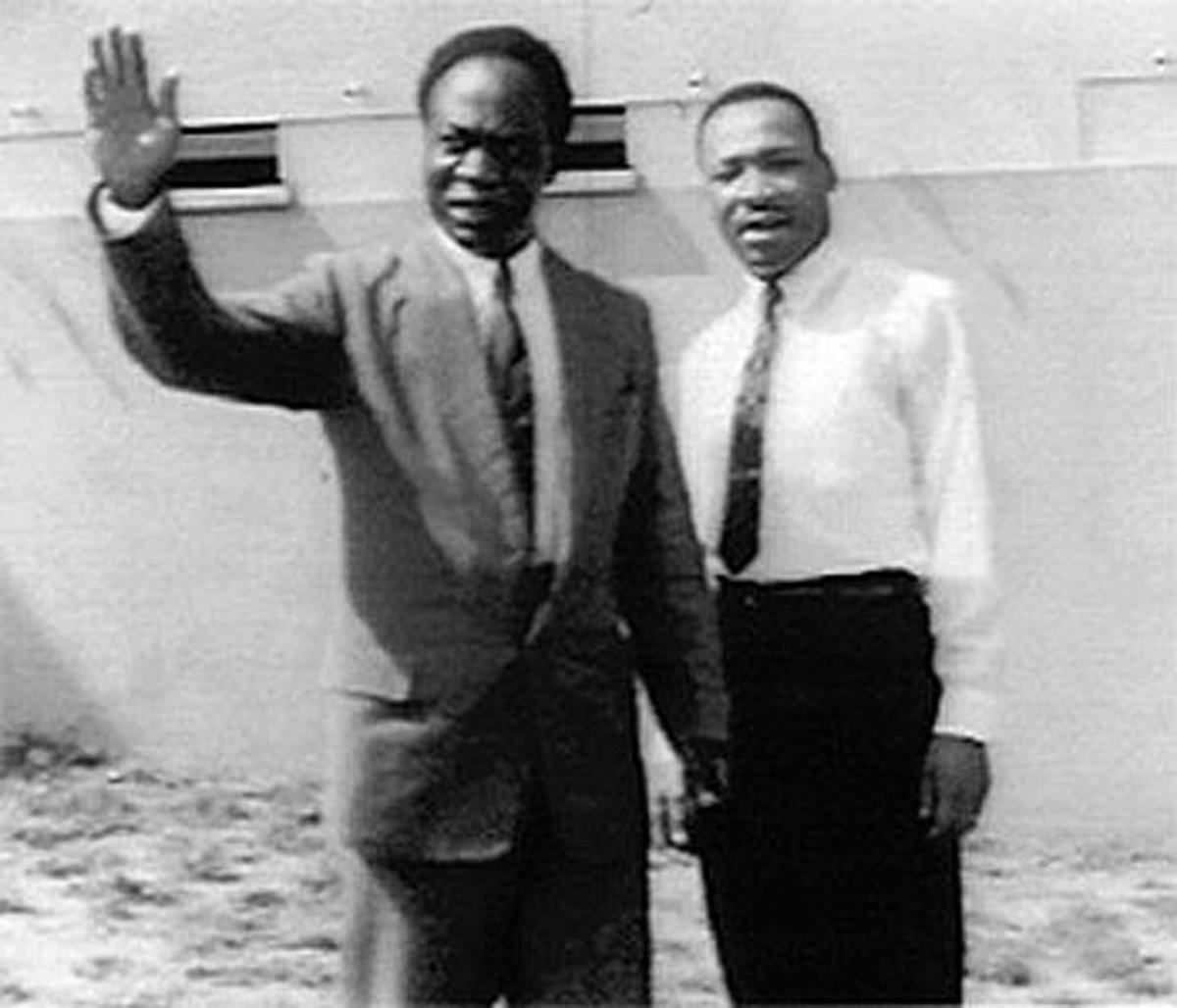Branding MLK
January 17, 2022 African America / Business / economic / economic justice / January / justice / Martin Luther king / MLK Day / social / social justice

On Martin Luther King Day of January 18th, 2021, and now 2022, we are celebrating and recognizing Martin Luther King’s day as he was one of the pioneers who led the fight against the plight of African Americans as he expressed in his speech “the Other America”,“It may be true that morality cannot be legislated, but behavior can be regulated. It may be true that the law cannot change the heart but it can restrain the heartless. It may be true that the law can’t make a man love me, but it can restrain him from lynching me, and I think that’s pretty important also”.
Martin Luther King Jr. was able to work with coalitions of people who stood for humanity and aligned with those who sought equality and human rights for African Americans, the economically disadvantaged and all victims of injustice. His peaceful protest resonated across the world and in balance with the likes of Malcolm X and others who may not have the same approach to change, on July 2nd 1964 Johnson signed the Civil Rights Act of 1964, a far reaching bill that aimed to “eliminate the last vestiges of injustice in America”. As Martin Luther King Jr. stood behind Johnson while he signed the bill into law, MLK Jr. made his mark in history 100 years after President Abraham Lincoln issued the final Emancipation Proclamation on January 1, 1863, as the nation approached its third year of bloody civil war. The proclamation declared “that all persons held as slaves” within the rebellious states “are, and henceforward shall be free.” With the Emancipation Proclamation, the aim of the war changed to include the freeing of slaves in addition to preserving the Union, and set the stage for the abolition for all slaves in both the North and South. The Emancipation Proclamation led to the 13th Amendment, which abolished slavery in the United States on December 6th, 1865. The work of MLK was a culmination of many before him who stood for justice, equality, economic opportunities and coexistence. It is worth noting that between 1822 and the American Civil War, some 15,000 African Americans settled in Liberia, a country that was granted independence by the United States in 1847, and an official U.S. diplomatic recognition in 1862, making it the first independent democratic republic in African history. The civil rights movement brought together those who were labeled Black, be it from the Caribbean’s, South Americans, Africa and African in America- to ultimately build a strong synergy with Africa.
 MLK Jr. was one of many African American leaders’s whose bond with Africa strengthen Africa and America relations and unity. Such bond also allowed them to be a force for freedom and liberation as they were able to see the value in connecting with the African continent which was revived through the 1619 projects. As MLK traveled to Ghana to celebrate Ghana’s independence, 400 years later, Ghana was able to welcome African Americans to reconnect and reclaim their roots. Although there are those who no longer identify with Africa’s identity, especially since generations lived disconnected from the motherland and in dismay of the New World, recent initiatives undertaken by countries such as Ghana, Angola, Nigeria and Benin, has given an opportunity to African Americans seeking to understand their ancestral journey and reclaim their identity, sometimes with the use of DNA, through tourism, investment and even citizenship.
MLK Jr. was one of many African American leaders’s whose bond with Africa strengthen Africa and America relations and unity. Such bond also allowed them to be a force for freedom and liberation as they were able to see the value in connecting with the African continent which was revived through the 1619 projects. As MLK traveled to Ghana to celebrate Ghana’s independence, 400 years later, Ghana was able to welcome African Americans to reconnect and reclaim their roots. Although there are those who no longer identify with Africa’s identity, especially since generations lived disconnected from the motherland and in dismay of the New World, recent initiatives undertaken by countries such as Ghana, Angola, Nigeria and Benin, has given an opportunity to African Americans seeking to understand their ancestral journey and reclaim their identity, sometimes with the use of DNA, through tourism, investment and even citizenship.
From Emperor Haile Selassie to President Kwame Nkrumah and Martin Luther King, many of the 1900 leaders knew that ‘Blackness’ was at risk and our continued muted voice would lead to a load of anger, resentment and many varying emotions not only for what occurred 400 years ago but for our current state of affairs.
The masses of people are rising up. And wherever they are assembled today, whether they are in Johannesburg, South Africa; Nairobi, Kenya; Accra, Ghana; New York City; Atlanta, Georgia; Jackson, Mississippi; or Memphis, Tennessee — the cry is always the same — “We want to be free.” MLK
It can be argued that unlike this generation that has forgotten the interlinking between leaders of Africa and America, the past generation understood the power of unity with Africa. Many leaders of the 1960’s were not only affirming for a special place in society, they were also advocating for economic rights- ownership and wealth- and active participation in capitalism which is founded on ownership. The freedom that was fought for and continues to be fought is to “Be”, have opportunity to “wealth building” and to “live with dignity” regardless of race, religion, gender, creed, and ethnicity. It is a continuous fight to attain justice and economic freedom as the acceptance of a diverse nations has yet to be defined and the hindered ladder toward wealth building has yet to be adjusted. MLK Jr. stated ” We must see now that the evils of racism, economic exploitation and militarism are all tied together. And you can’t get rid of one without getting rid of the other.”
Black Wealth
According to the Road to Zero Wealth report published by Prosperity Now and the Institute for Policy Studies, “the median wealth of black Americans will fall to zero by 2053 if current trends continue”. It means black people in general, in America or Africa, are battling to arrive at the “mountain top” as MLK Jr. wrote in “Where do we go from here: Chaos or Community”, “We have come a long way in our understanding of human motivation and of the blind operation of our economic system. Now we realize that dislocations in the market operation of our economy and the prevalence of discrimination thrust people into idleness and bind them in constant or frequent unemployment against their will. The poor are less often dismissed from our conscience today by being branded as inferior and incompetent. We also know that no matter how dynamically the economy develops and expands it does not eliminate all poverty.”
MLK fought for economic, social and cultural justice in contrast with the African Continent which, despite the “Africa Rising” and “Entrepreneurship” narrative, has lagged behind in nation building and country branding. Collectively, Black people have failed to comprehend that ‘how Africa is treated is how the world will treat all Black people’. For instance, over 85% of Africans in Africa live in poverty ( less than 5.50 dollars a day) and with the widening global wealth gap in addition to the fourth industrial era which will increase the “wants and desires” of the world’s most vulnerable, wealth building, financial capital and economic equity have been disregarded from the present narrative. While Africans are still grappling with the exploitation of “invisible hands”, African Americans and the larger African Diaspora are busy surviving as few have been able to thrive. It’s easy to see less than hundred thousand Africans of first and second generation do well in America when 1.2 billion people reside in the pillaged Continent where their dignities are stripped and some are still sold for 400$ a body or are exploited laborers in the Middle East.
With the recent events such as the George Floyd brutal killing aside the long list of injustices, various researches including one of the Pew Research Center reports that despite the injustices towards Black people, many Africans still cross the desert and fight for their life to arrive at what they believe is the promise land. Hence, Africans who migrated to America “roughly 10 percent of the 40 million black people living in the United States who were born abroad” are “more likely to have college degrees than blacks and whites who were born in the United States” whereas “it will take 228 years for the average Black family to reach the level of wealth White families own today. For the average Latino family, matching the wealth of White families will take 84 years”. Regardless, the narrative of “Blackness” does not change even if some may claim that “Blackness” has slightly improved since the Civil Rights Act of 1964. With Africa being considered resource rich with untapped human capital, and if African Americans/Diaspora purchasing power is equivalent to the GDP of a country ranked 46th in the world, it makes timely for Black people to change the victimized and distorted black narrative which has been prevalent and overwhelming. Needless to say, recent realities has promoted the importance of Black wealth with #buyBlack, #supportBlackBusinesses and #buyMadeinAfrica products.
As MLK stated
“Faith is taking the first step even when you don’t see the whole staircase.”
It’s easy to say, than done
Yes wealth has always been part of our collective culture and all injustices are somehow related to wealth. The new color is Green though to think that your color is insignificant I invite you to listen to another who speaks about nation building in Africa. Nation building, country image promotion and business brand marketing are vital for economic and social growth. Our objective analysis and perspective about globalization and africa, and with the understanding about how pivotal cross-cultural branding is for 21st century, Afrolehar was launched.
In the words of Nkrumah
Countrymen, the task ahead is great indeed, and heavy is the responsibility; and yet it is a noble and glorious challenge – a challenge which calls for the courage to dream, the courage to believe, the courage to dare, the courage to do, the courage to envision, the courage to fight, the courage to work, the courage to achieve – to achieve the highest excellencies and the fullest greatness of man. Dare we ask for more in life?.
and in the world of MLK
“Rarely do we find men who willingly engage in hard, solid thinking. There is an almost universal quest for easy answers and half-baked solutions. Nothing pains some people more than having to think.”
Contact us for your Diaspora engagement and multicultural market penetration needs.
(Edited 01/17/2022)
« US-Africa relations: The Beginings